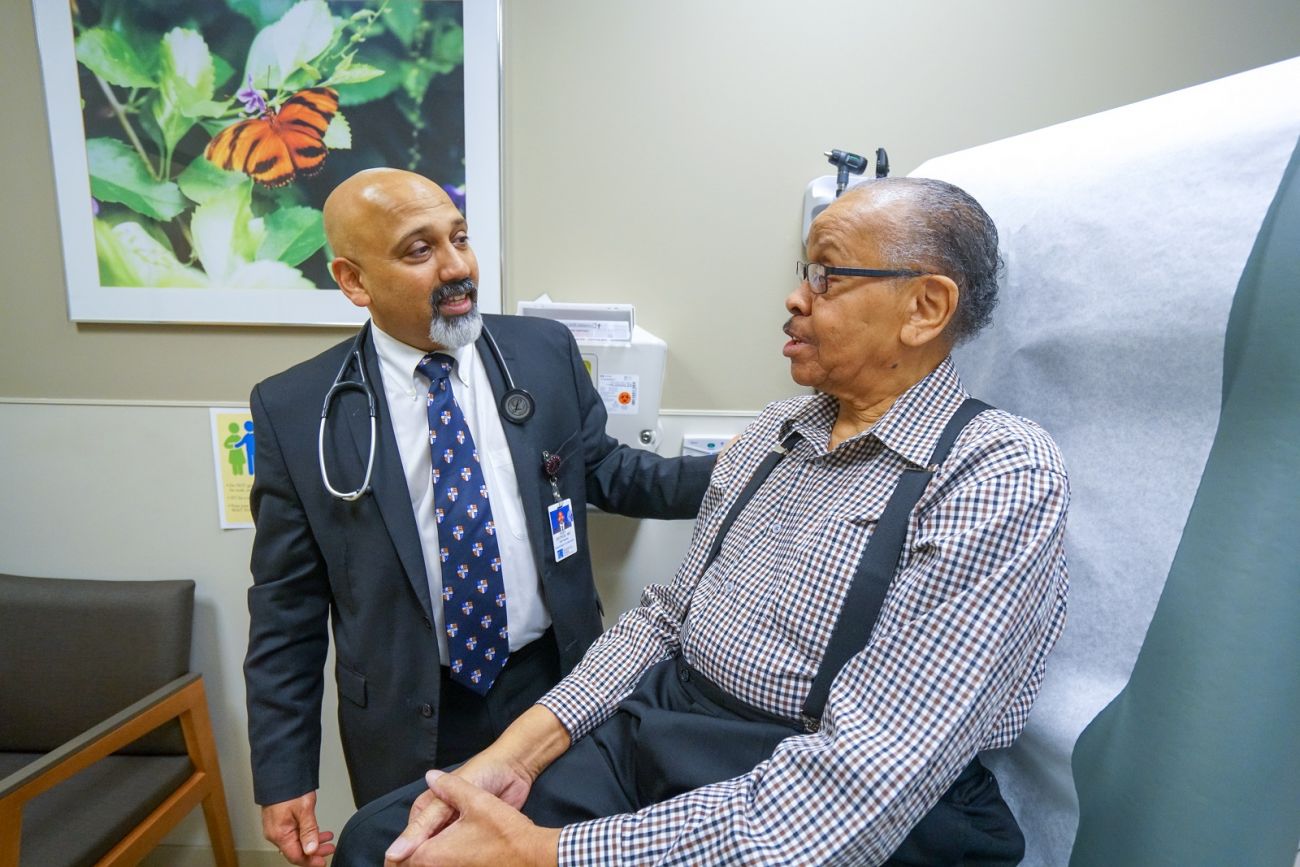Your body’s immune system has been at work your whole life, detecting and removing cells that don’t belong in your body — bacteria, viruses or fungus, for example — while leaving the cells that appear to be a part of you alone. Because cancer cells develop from your own body cells, it becomes difficult for the immune system to recognize them as something to attack.
Immunotherapy — which aims to supercharge the immune system to fight cancer — is one of the newest approaches in cancer treatment. Roswell Park conducted the clinical trials for many of these drugs, beginning nearly a decade ago. Our patients have had access to these breakthrough therapies for years. Immune approaches for kidney cancer involve several different types of immunotherapy, and include:
- Nivolumab (Opdivo)
- Ipilimumab (Yervoy)
- Pembrolizumab (Keytruda)
- Cytokines such as interferon-alpha and interleukin-2 (IL-2)
Roswell Park leads the way
Immunotherapies have brought remarkable progress for the treatment of kidney cancer, but they also demand unique knowledge and experience to deliver them safely. Roswell Park is at the forefront of the work to develop new immunotherapies to treat cancer. We are among a select group of 40 elite universities and cancer centers in the United States in the Cancer Immunotherapy Trial Network (CITN), which means we can offer these newest options to our patients today. Roswell Park’s research in immunotherapy has led to breakthrough discoveries and the development of new treatment options.
Managing side effects of immunotherapy
In recent years, immunotherapies have brought remarkable progress for the treatment of kidney cancer, but they also demand unique knowledge and experience to deliver them safely. These medications, particularly checkpoint inhibitors, have myriad side effects caused by an over-activation of the patient’s immune system, causing it to attack normal organs. This can affect virtually any organ.
The most common and severe side effects involve the endocrine organs, resulting in diabetes or thyroid abnormalities and the gastrointestinal system causing inflammatory bowel disease. Rarely, the drugs can cause inflammation in the heart muscle tissue (myocarditis) leading to rhythm disturbances and heart failure. Roswell Park’s oncologists work closely with our endocrinologist, gastroenterologists and cardiologist to monitor for signs of these complications and treat them promptly.
In the pipeline
Researchers are currently evaluating Stereotactic Body Radiation Therapy (SBRT) in kidney cancer. When a large number of cells die at once from radiation, two consequences occur:
- Blood vessels feeding the tumor to collapse, potentially starving the tumor of nutrients it needs to survive.
- The immune system responds, triggering another mechanism for immunotherapy, at least in theory.

